Pre-clinical
Preclinical studies have allowed us to identify the potential of IGC-AD1 to be an AD-modifying drug. The combination of the active ingredients at low, non-toxic concentrations was shown to reduce Aβ aggregation in N2aAβPPswe cells, maintain APP levels, and enhance mitochondrial function in a dose-dependent manner.
Pre-clinical
Study results
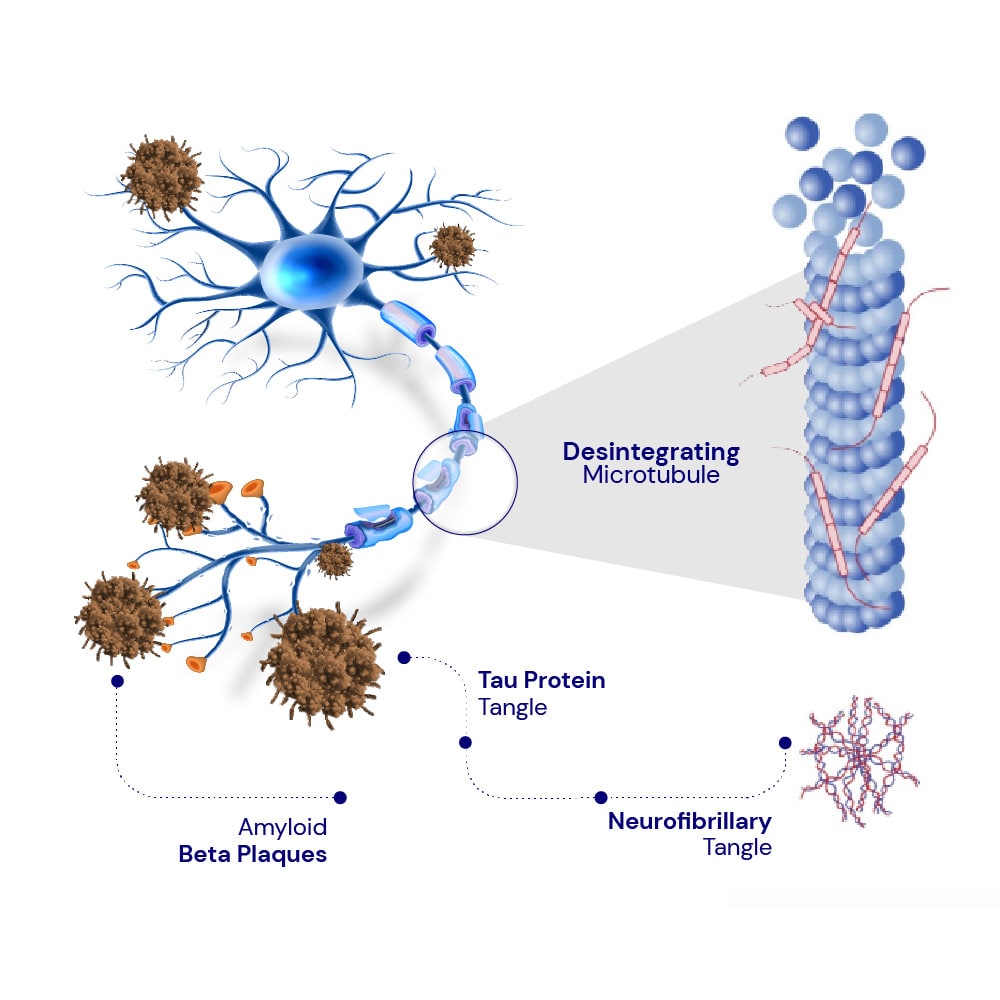
-
Inhibit the formation of neurofibrillary tangles
-
Inhibit the formation of plaques.
-
Enhance mitochondrial functioning.
-
Improve spatial memory.

Pre-clinical studies:
Detailed scientific results
-
Aβ Production
& Aggregation -
The API in IGC-AD1 reduces Aβ40 peptide production and Aβ42 aggregation in Alzheimer’s cell lines.
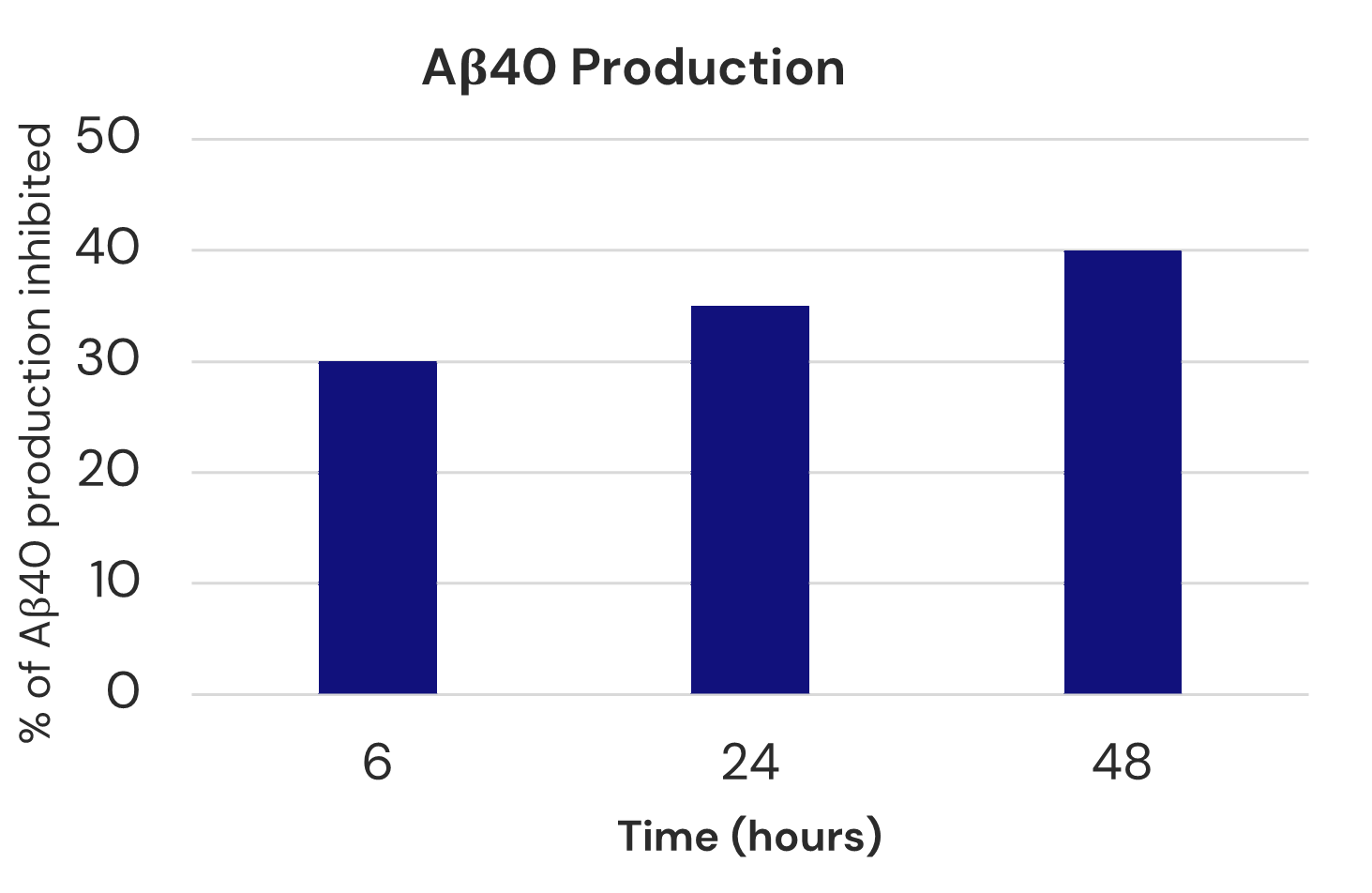 Representation of Cao et al., 2014
Representation of Cao et al., 2014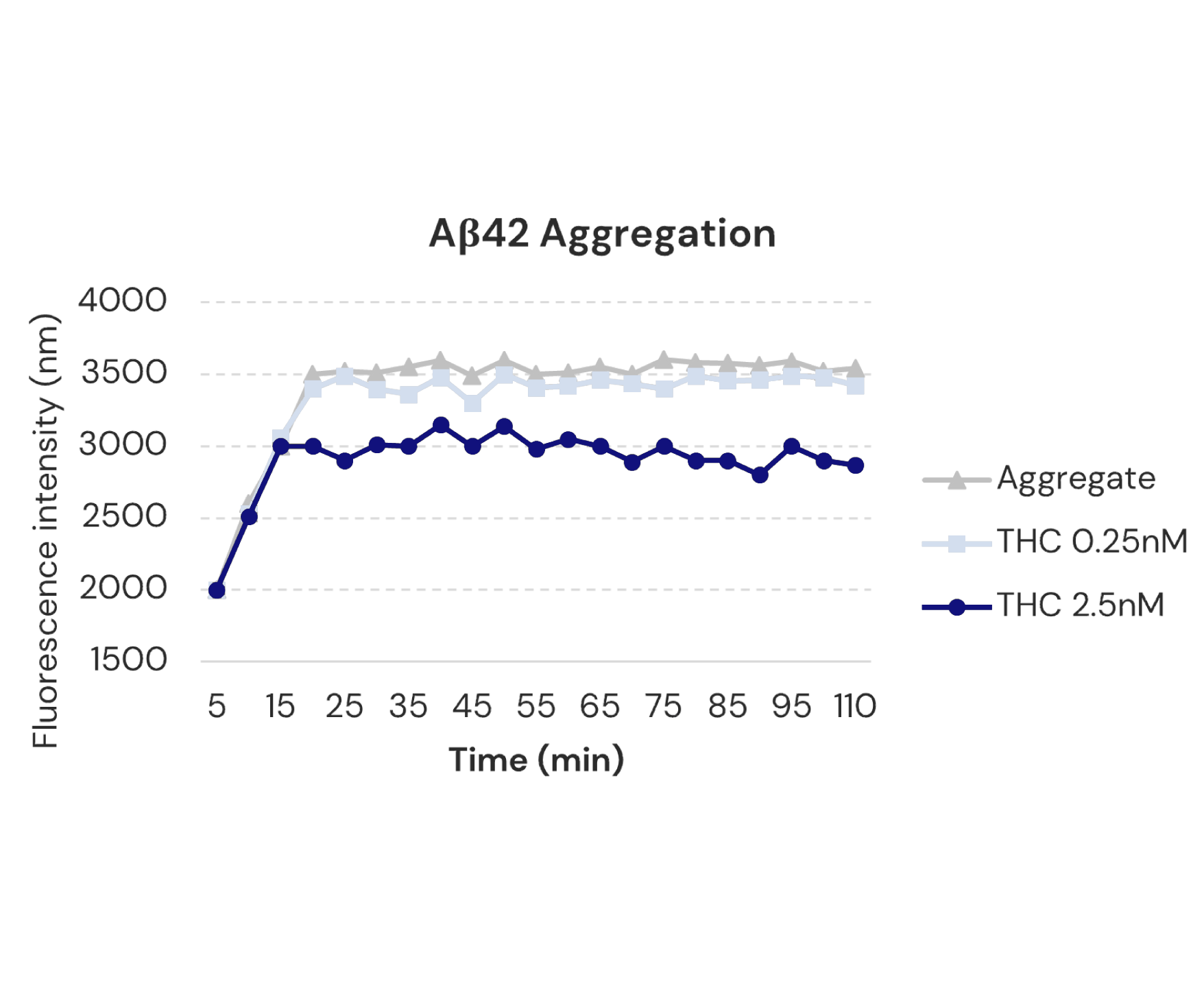
-
Aβ Monomers
-
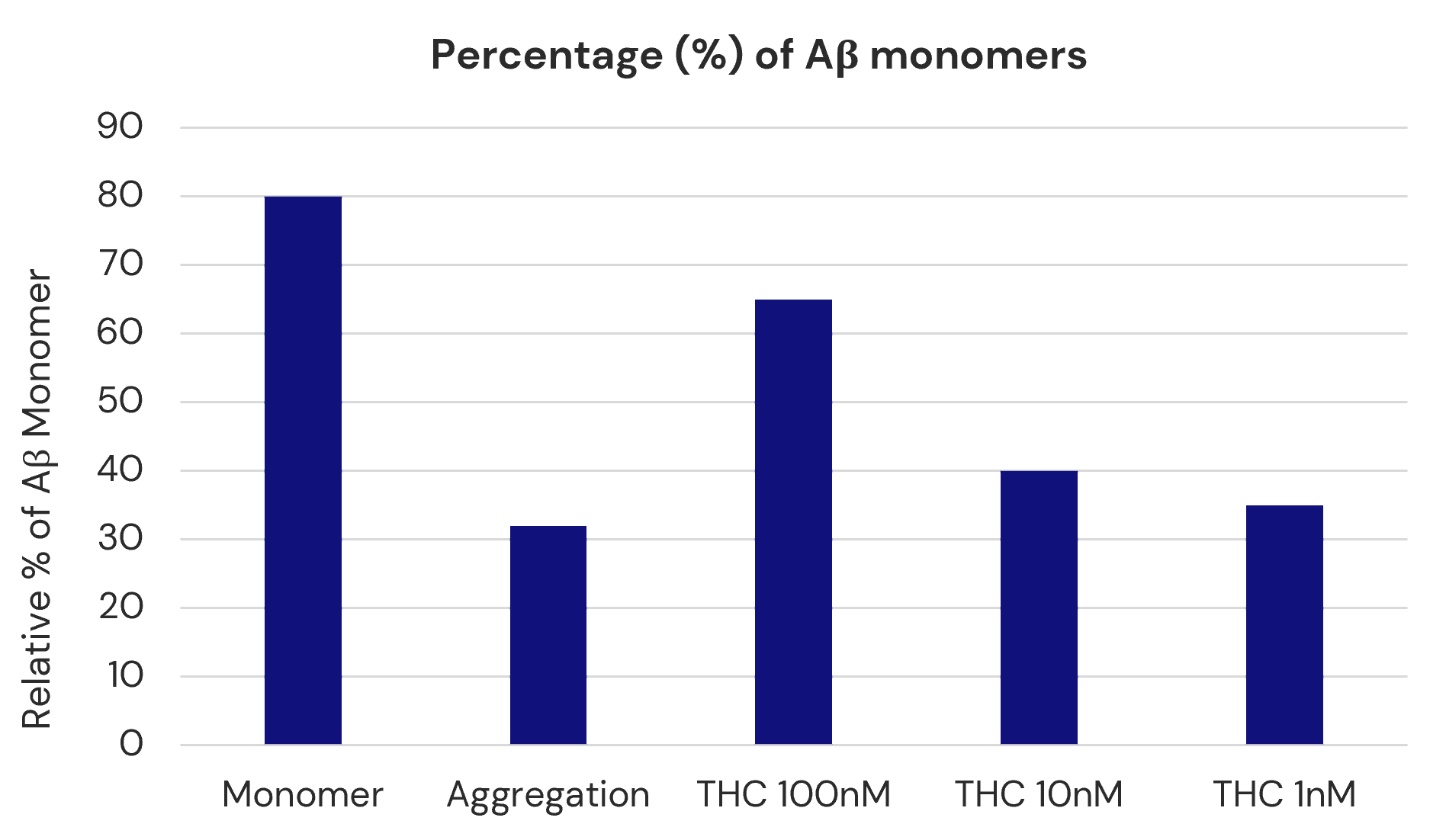 In Alzheimer’s cell lines, IGC-AD1 increased Aβ monomers and decreased Aβ aggregation in a dose-dependent manner.
In Alzheimer’s cell lines, IGC-AD1 increased Aβ monomers and decreased Aβ aggregation in a dose-dependent manner.Representation of Cao et al., 2014
-
APP Levels
-
The APIs in IGC-AD1 did not reduce Amyloid Precursor Protein (APP) levels in Alzheimer’s cell lines. APP modulates cell growth, motility, and survival; it is cut to create small fragments such as the Aβ peptide that eventually deposit as plaque.
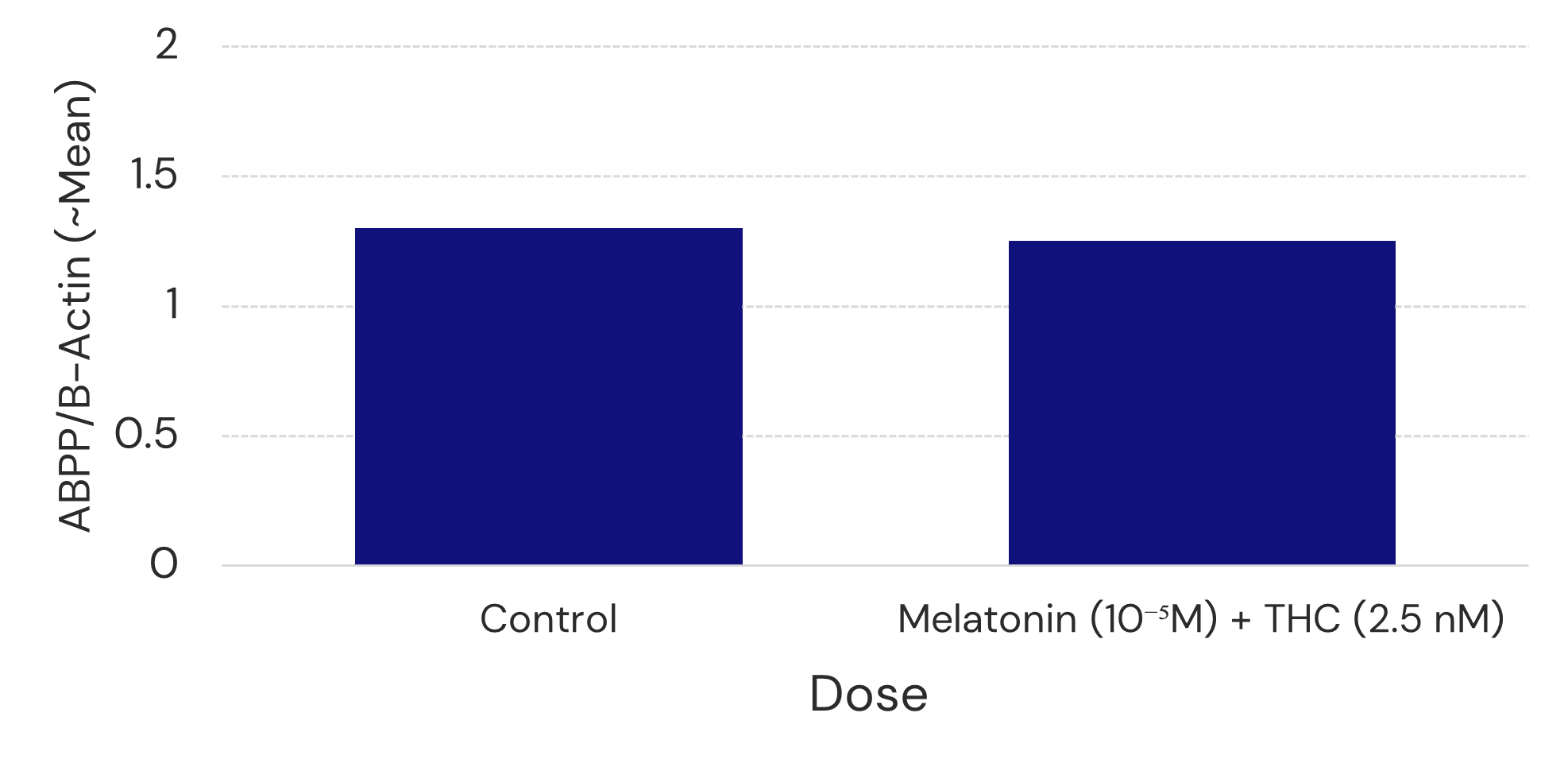 Representation of Cao et al., 2014
Representation of Cao et al., 2014 -
Spatial Memory
-
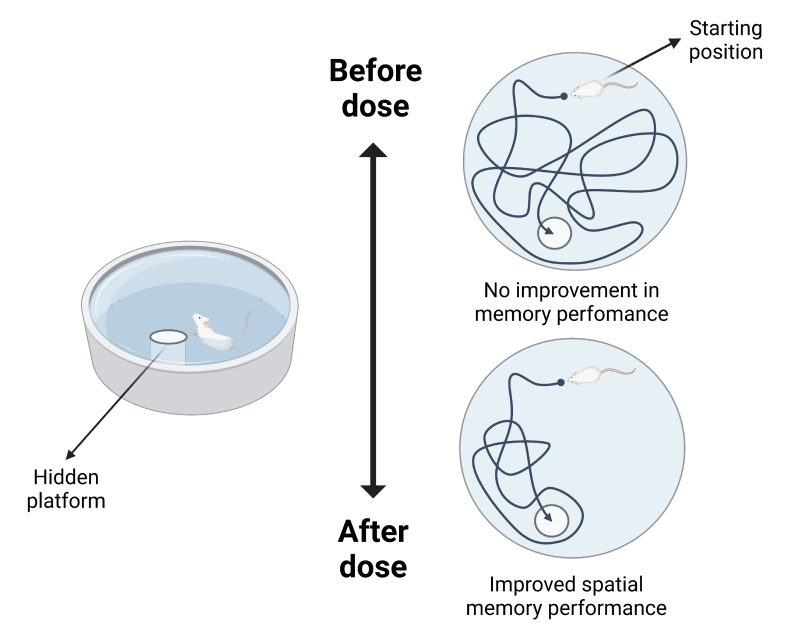
Memory Improved
in Alzheimer’s Mice ModelIn a Morris Water Maze test, mice dosed with the API in IGC-AD1 had significantly improved times and less errors than those in the control group demonstrating that memory improved in transgenic (APP/PS1) mice.
Nature Protocols. 2006; 1: 848-858; Int. J. Mol. Sci. 2022, 23, 2757 -
Neurotoxicity
-
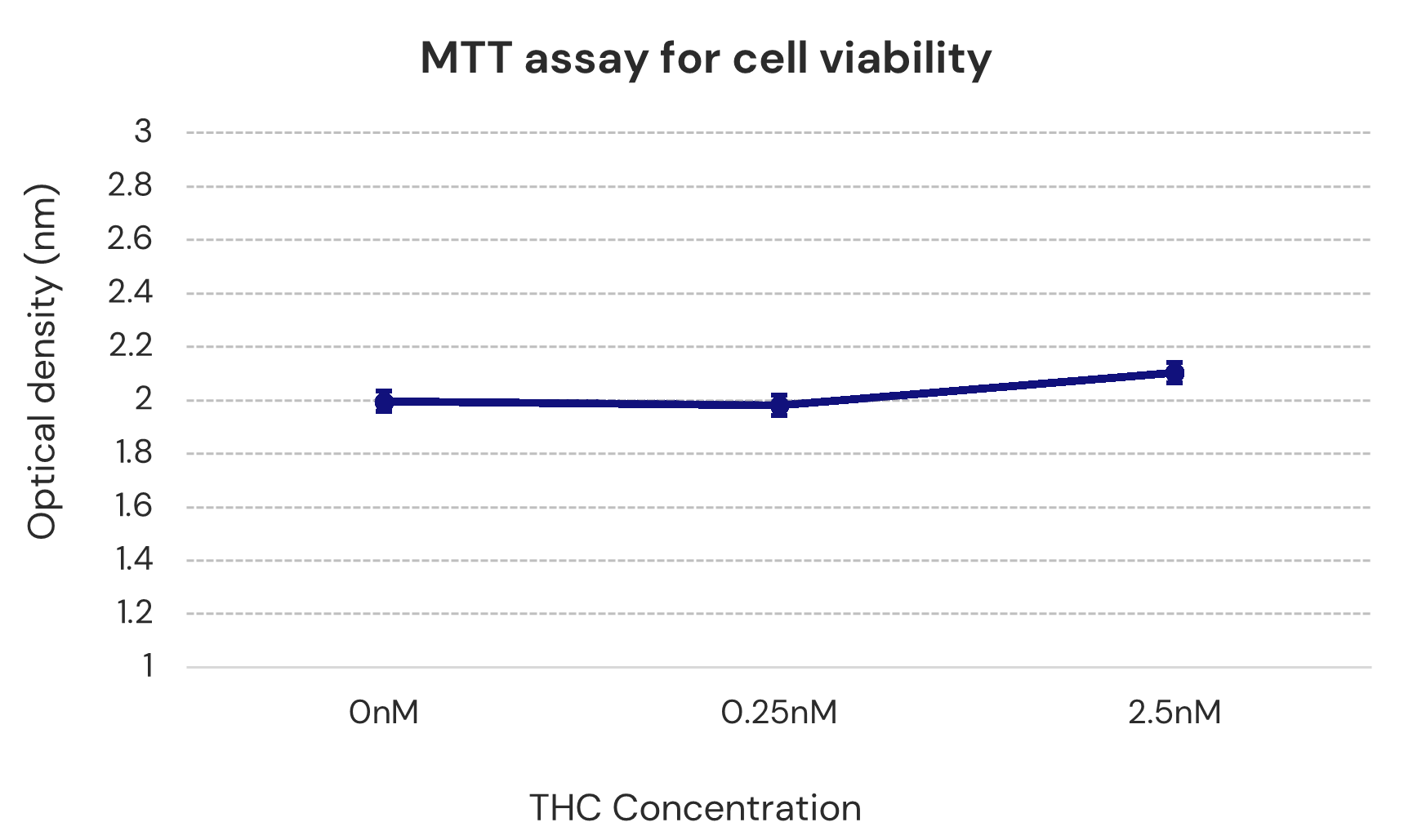 Over 48 hours, repeated low-dose exposure to the API in IGC-AD1 was not toxic to Alzheimer’s cells (N2a/AßPPsWe cells).Representation of Cao et al., 2014
Over 48 hours, repeated low-dose exposure to the API in IGC-AD1 was not toxic to Alzheimer’s cells (N2a/AßPPsWe cells).Representation of Cao et al., 2014



Representation of Cao et al., 2014


Memory Improved
in Alzheimer’s Mice Model
In a Morris Water Maze test, mice dosed with the API in IGC-AD1 had significantly improved times and less errors than those in the control group demonstrating that memory improved in transgenic (APP/PS1) mice.


